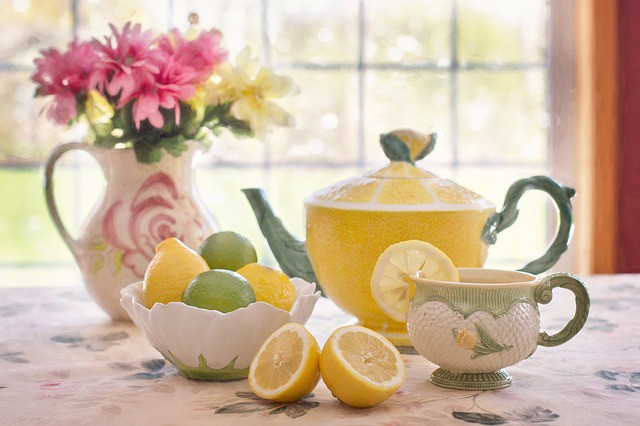Most people cannot imagine their mornings without a cup of coffee. In fact, according to the Hardwar School of Public Health, more than 50% of Americans over the age of 18 drink coffee every day. The drink staves away headaches, fatigue and lack of both motivation and concentration. On the other hand, the US tea market has quadrupled in the last twenty-five years – from around 2 billion dollars in 1990 to more than 10 billion last year, according to reports from the US Tea Association.
While tea has a better reputation than coffee, both drinks have their health benefits. However, exactly what those benefits are is sometimes hard to pinpoint due to the large amount of contradictory research papers and studies. Nevertheless, we are going to take a look at a couple of scientifically proven facts, and try to conclude which one of these two drinks is in fact better for your health.

Origins of Coffee and Tea
Tea and coffee are the two most consumed beverages in the world, next to water and beer, and both drinks have been around for a very long time. According to a legend, the Emperor of China discovered tea in 2737 BC, while he was boiling water outside, under a tree. The leaves from the tree accidentally fell into the water; he tasted it and was surprised by its rich flavor. The drink instantly became popular with scholars and poets, who used it to help them study and meditate. This is perhaps why tea is to this day associated with wisdom and spirituality.
On the other hand, coffee did not seem to appear until much later. While we cannot know for sure, most researchers believe that coffee originated in Ethiopia, where legends says a goatherd known as Kaldi noticed one day that some of his goats became overactive after eating certain “berries”. Afterwards, coffee spread among monks who drank it in order to stay alert while praying. From there, the beverage began spreading across the Arabian Peninsula; however, coffee did not reach Europe until the start of the seventeenth century.
The Positive Effects
Tea is filled with anti-oxidants, so it has potential cancer-fighting properties; according to National Cancer Institute findings, tea contains polyphenol compounds, which might aid in cancer prevention. There is also some evidence that drinking organic tea, such as the Matcha Green Tea can calm your nerves. A study from the Australian and New Zealand Journal of Psychiatry showed that people who drink three or more cups of green tea have a 37% lower risk of depression than those who do not drink it.
When it comes to coffee, most researchers are focused on the potential benefits. Specifically, a recent Hardwar study revealed that people who drink up to five cups of coffee a day are less likely to die prematurely than those who do not drink it at all. In addition, caffeine is a big source of antioxidants and regular consumption has been linked to protection from Parkinson’s disease, type 2 diabetes and certain types of cancer.
The Negative Effects
High amounts of unfiltered coffee are primarily linked to high levels of LDL (bad cholesterol). Furthermore, scientists from the University of Surrey have confirmed that large amounts of coffee keep you awake at night, because high caffeine content catches up with you in the evening. Additionally, according to researchers from the Autonomous University of Barcelona, chronic consumption can cause addiction and several other disorders.
Some of the benefits of tea are not clearly visible in tea-loving countries such the US and the UK, where tea is frequently consumed with the addition of milk. According to Verena Stangl of the Charité Hospital in Berlin, casein proteins from milk block most of tea’s positive effects. Moreover, some studies have shown that oxalates in tea can do damage to your kidneys.
Conclusion
Based on these studies, both beverages have vague pros and cons and there is little between the two than your personal taste. Both are, for the most part, good for you, but the main takeaway is that excess is not a good idea. As with anything that contains large amounts of caffeine, both tea and coffee could potentially cause anxiety, restlessness, nausea and insomnia, when consumed in large quantities. In addition, you are definitely better off leaving the heavy cream and those three packs of sugar out of your beverages.
Recent Posts
- Castor Oil For Better Hair Growth: Is It Myth Or Fact?
- Exploring the Differences Between Sermorelin, Ipamorelin, Ibutamoren, GHRP2, and GHRP6: Understanding Their Role in Human Growth Hormone Regulation
- Unraveling the Mystery: Understanding the Causes and Prognosis of Ventricular Tachycardia Without Apparent Heart Disease
- Understanding Grandparents’ Rights in Oklahoma: Navigating Visitation and Legal Protections
- 10 Reasons to Consider Hypnotherapy for Your Health

